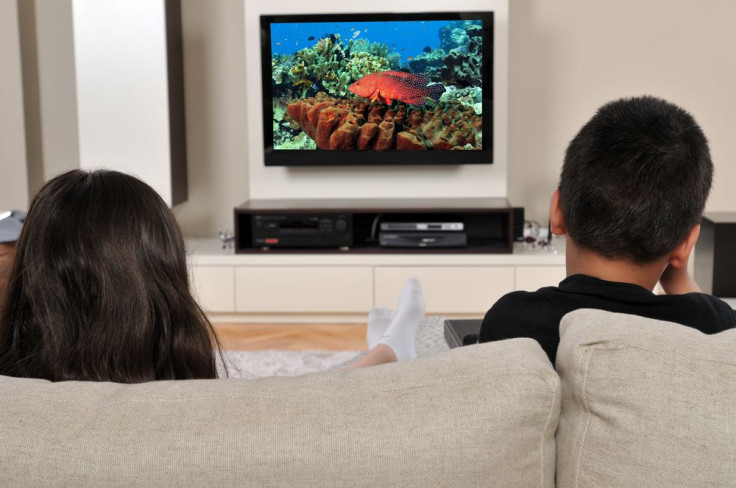Hulu Moves Show Disney Isn't Taking On Netflix, It's Taking On Cable

Walt Disney (NYSE:DIS) doesn't own all of Hulu, but it does control the streaming company and two-thirds of its shares. That makes it so the Mouse House no longer has to negotiate budgets with former equal partner Comcast (NASDAQ:CMCSA), which now owns about one-third.
Whether Disney buys out the remaining shares now or sometime down the road, the company has clearly taken over Hulu's leadership. That led to a major May 1 press event where the streaming company shared its content plans (with a heavy dose of Disney's Marvel) and some new advertising technology.
Hulu's CEO Randy Freer also shared that his company now has 26.8 million paying customers. That's still only a fraction of the 150 million paying users Netflix (NASDAQ:NFLX) has, but it makes Hulu the No. 3 streaming player (arguably No. 2 if you assume that most Amazon customers don't use Prime Video all that much).
What's next for Hulu?
What wasn't said at the press event may be as important as what was announced. Not only does Disney own a controlling stake in Hulu, it also has its upcoming Disney+ streaming service along with its ESPN+ offering. In addition, it's important to remember that Hulu isn't just about its own shows and archival content, it also has a live TV offering.
Disney has already said that the company will bundle all its services at a deal price. Since Disney+ will cost $6.99, ESPN+ costs $4.99, and ad-supported Hulu without live TV costs $5.99 (a total of $17.97 for all three) that's about double what an $8.99 basic Netflix subscription costs. And, since most Netflix customers probably pay for the two-device HD plan, which costs $13 a month, a Hulu bundle with a discount may make the costs relatively close.
In advance of a potential bundle deal, Hulu is not standing pat. It's adding a number of shows to entice new subscriptions, including two live-action Marvel series. These offerings include:
- Live-action shows Marvel's Ghost Rider and Helstrom
- Animated shows Marvel's M.O.D.O.K, Hit-Monkey, Tigra & Dazzler Show, Howard the Duck, and a special event, Marvel's The Offenders
- Multiple food-related series from Vox Media Studios, David Chang's Majordomo Media, and Chrissy Teigen's Suit & Thai Productions
- Nine Perfect Strangers, a series starring Nicole Kidman
- The Dropout, a series based on the story of drug company Theranos, starring Kate McKinnon
Hulu also plans a new take on how it uses advertising, which includes launching a new ad format it describes as "nonintrusive" and is specifically aimed at binge watchers. The new format "will make it possible for marketers to target binge viewers with a creative that is situationally relevant to their viewing behavior," the company said in a press release.
The streaming company also plans to show ads when a viewer has paused a program starting in August. The binge advertising solution will launch later this year.
What is Disney doing?
Hulu's parent company is strengthening the service to make it a key part of its bundled offering. Together, Hulu's $45 live-streaming (ad-supported) option, Disney+, and ESPN+ will soon be able to provide an integrated interface with a very cable-like offering price of around $57 a month (possibly less if a bundling deal is offered). Consumers could even add HBO or other premium channels and have that content appear in the Hulu interface as well.
If Disney bundles its properties this way, cable companies may have to answer by offering cheaper bundles and partnering with companies like Netflix (which has been open to working with its cable rivals). Big cable has held off on doing that till now because it then becomes easy for its own customers to switch to a cheaper alternative. Disney, however, may finally force a change in attitude. If cable companies don't offer comparable packages, Disney may soon have an offer compelling enough to cause a whole new wave of cord cutting.
Disney isn't seeking to replace Netflix. It's making a bolder bet and trying to replace cable. That's a big move, but the company has the products in place (or soon will) to give consumers convenience, value, and selection.
This article originally appeared in the Motley Fool.
John Mackey, CEO of Whole Foods Market, an Amazon subsidiary, is a member of The Motley Fool's board of directors. Daniel B. Kline has no position in any of the stocks mentioned. The Motley Fool owns shares of and recommends Amazon, Netflix, and Walt Disney. The Motley Fool recommends Comcast. The Motley Fool has a disclosure policy.




















